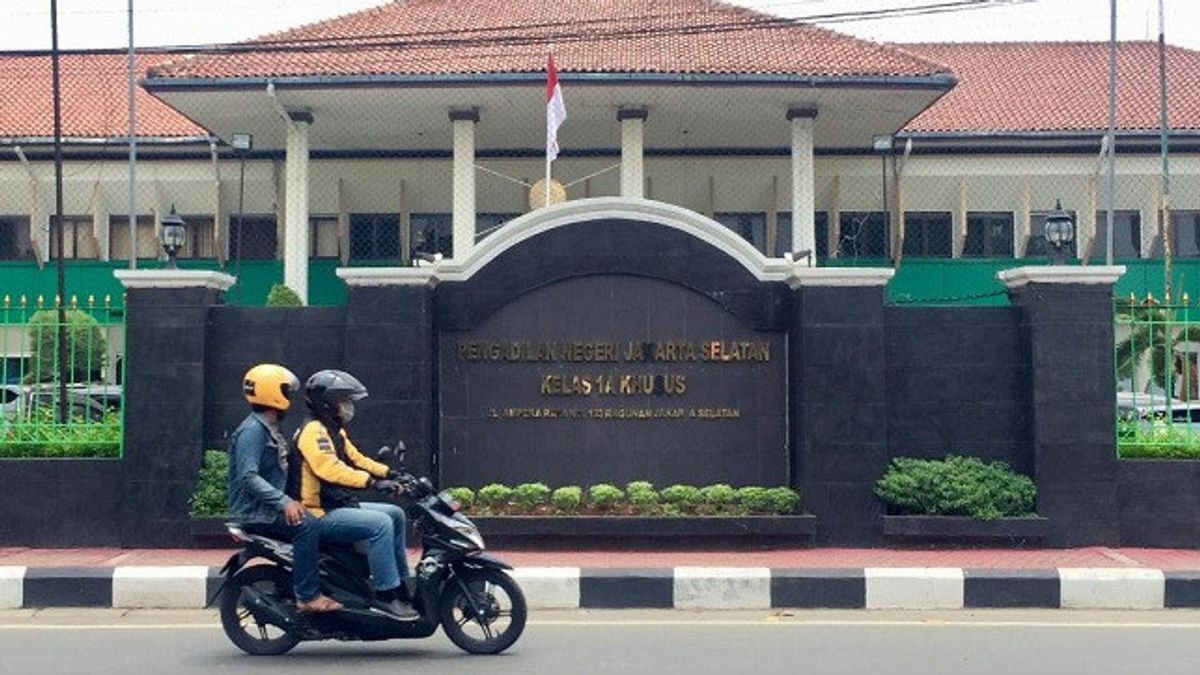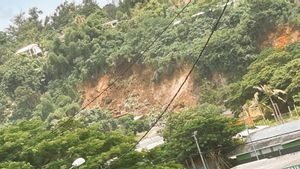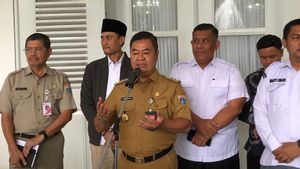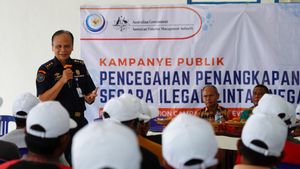The trial of the alleged false oath case with the defendant Ike Farida was again held at the South Jakarta District Court (PN), Friday, October 25.
At the trial scheduled for this proof, the Public Prosecutor (JPU) presented a number of witnesses who weighed on the defendant.
Salah satu saksi yang dihadirkan adalah Ai Siti Fatimah, bagian legal PT pengembang apartemen yang dibeli terdakwa.
In his testimony, Ai said that there was no agreement to separate assets between the defendant and her husband, who is a foreign national (WNA).
Therefore, Ai said that the making of the Sale and Purchase Agreement (PPJB) and the Sale and Purchase Deed (AJB) between the developer and Ike could not be continued.
"If forced, the developer actually violates the law. In 2012 the developer had offered Ike Farida a complete refund, but was always rejected, so this problem lasted for up to 12 years," Ai said in a statement.
Ai admitted that his party had offered the defendant to enter a new order so that in terms of law, the requirements for making PPJB and AJB were fulfilled.
"But the defendant still refused. This is what causes this case to drag on for up to 12 years and become a criminal case like today," he said.
Apart from Ai, the prosecutor also presented the former defendant's attorney, Nurindah MM Simbolon, to the trial.
"As a lawyer who is also an employee at Ike Farida's attorney's office, it is impossible for him to act without an order or approval from Ike Farida," said Nurindah's attorney, Lammarasi Sihalolo.
"Starting from discussing the review memory draft until the novum to be submitted, it has been discussed and given an initial approval by Ike Farida," he added.
Meanwhile, Ike's attorney, Kamaruddin Simanjuntak, assessed that Ai's testimony as a witness from the prosecutor was inconsistent.
"This is inconsistency rather than this witness whose name is Ai Siti Fatimah. The PK decision alone does not understand," said Kamaruddin.
Previously, in the interim decision read out on Monday, 21 yesterday, the Panel of Judges rejected the note of objection or exception from the defendant.
Thus, the next trial will proceed to the subject matter of the case or evidence by examining witnesses from the defendant and the Public Prosecutor (JPU).
Interviewed after the trial, the defendant Ike Farida admitted that she was disappointed with the decision between the Panel of Judges. He said the judge was not careful in reading his exception.
"I really regret that the judge in my opinion is not thorough and may get caught in the wind. Sorry. Because the legal advisory team is so good at conveying all the mistakes and violations that are in the Criminal Procedure Code," Ike told reporters.
Ike's attorney, Agustrias Andika, said that the Panel of Judges did not respond to all the exceptions submitted.
SEE ALSO:
"It seems that the Panel of Judges did not respond to all the exceptions we submitted, especially regarding the formal requirements of Article 242. Article 242 is a special article in chapter 5, where for the application of Article 242 of the Criminal Code by investigators and prosecutors, it must be given a warning," said Agustrias.
"Where in the interlocutory decision, the judge did not dare to apply for it. And what we conveyed in the exception, we submitted, but there was no response in consideration," he added.
The English, Chinese, Japanese, Arabic, and French versions are automatically generated by the AI. So there may still be inaccuracies in translating, please always see Indonesian as our main language. (system supported by DigitalSiber.id)
















